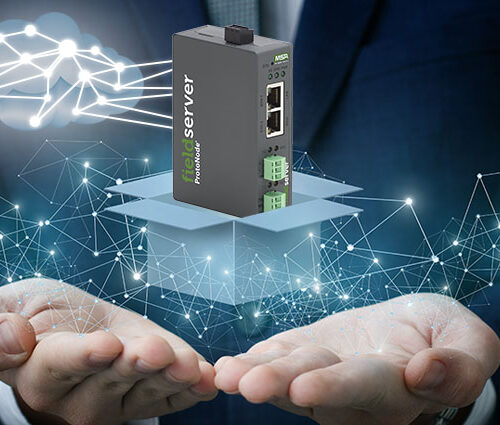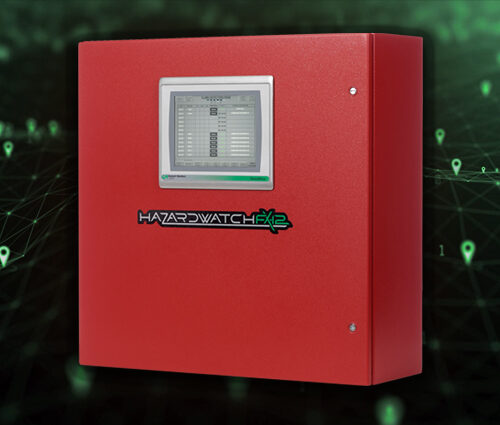
“I didn’t know FieldServer could do that!”
If we had a nickel for every time we heard someone say that, we’d have quite a few nickels. So, we decided it was high time to share some things about MSA FieldServer devices that you may not be familiar with – but should know.
Whether you’re an OEM, system integrator, building owner, plant supervisor, or life safety manager, let’s talk about how to make your job easier and your communication smoother and more secure with help from FieldServer gateways and routers.
What does FieldServer do?
When the first FieldServer was shipped out in the late 1990s, its main function was to assist with data transfer to and from devices. Since then, we’ve greatly expanded FieldServer’s capabilities, features, and protocols to better enhance productivity, efficiency, and safety across a wide variety of applications and industries. In fact, today there are more than a half-million installations worldwide of our FieldServer suite of automation gateway products.
At its core, FieldServer is like having a translator, working to make sense of a language or languages in which a person is not fluent, or simply cannot understand. Of course, FieldServer doesn’t do this with people, it does it with disparate devices.
Specifically, FieldServer is a communications gateway. Its job is to help a whole bunch of devices, each of which speaks a different language, “talk” with each other so they can do what they need to do – and that can mean helping with automating buildings, supporting fire alarm systems, and maximizing operational intelligence.
Why do organizations need the FieldServer protocol gateway?
When it comes to industrial sensing and automation with IoT technologies, such as wireless, Cloud connectivity, and data services, our FieldServer products have been at the forefront of bringing knowledge-based products and services to the Industrial Internet of Things or IIoT.
Here’s why you might need FieldServer:
On the one hand is the device. On the other is you or your team. FieldServer is the bridge that closes the gap between the two. It takes the information collected by the device and disseminates it to stakeholders so they can proactively and pre-emptively act.
Now that you know what FieldServer is and how it works, here are 4 things FieldServer can do that (maybe) you didn’t know about.
1. Quietly work to keep assets safe.
Whether your assets are people, property, proprietary data, or a combination of these, FieldServer is quietly at work on site or in the Cloud all around the world.
Corporate, educational, medical, entertainment, industrial, and other facilities rely on FieldServer IoT gateway products to read data from a variety of devices and use that data to be more proactive about operational and safety decision making.
OEMS, energy metering, building automation, industrial automation, and life & safety professionals rely on FieldServer to connect and protect high-value assets and infrastructure.
2. Provide multi-protocol communication.
We often compare FieldServer to a Swiss Army knife, which is a pocket-sized multitool. That’s because FieldServer is a nimble device with a smaller footprint, which is remarkably flexible.
Two or three protocols? No problem. FieldServer can handle it. Three, four, or even five? Again, no problem. We even have a customer that requires seven protocols and, guess what? FieldServer’s got them covered.
From EtherNet/IP to LonWorks to Modbus TCP/IP to BACnet (and a whole lot more) FieldServer can handle dozens upon dozens of certified protocols, as well as emulate either a Server or Client.
Go here to see the full list of FieldServer protocol drivers.
3. Enable remote access and Cloud connectivity.
The connected world we live in has enabled smart operations that result in greater productivity and enhanced safety. FieldServer supports these smarter, safer operations by empowering you and your organization with instant and relevant insights that keep production moving and workers protected.
Here are just a few of the many ways FieldServer can help:
- Remote notifications of alarms, alerts, updates, and reminders
- Deliver visibility into potentially hazardous situations
- Keep stakeholders informed in real time through immediate data visualization
- Minimize human error to reduce the nearly 3 million annual workplace injuries
4. Multiple applications that support productivity and efficiency.
FieldServer has the protocols to enable all types of operations across a wide variety of industries, including:
- Chillers (building automation) to communicate to SCADA (industrial automation)
- Energy meters (energy management) to communicate to DCIM (data centers)
- Drives (industrial automation) built into chillers to communicate to BMS (building automation)
- Fire alarm panels (life & safety) to communicate to:
- Building automation
- Data centers
- Industrial automation
- Cloud (remote notification)
Conclusion
By now we hope you have a better understanding of FieldServer and its many capabilities. But, wait! There’s still more to know about FieldServer, including how easy it is to configure, why it’s an industry leading IIoT solution, and how we’re protecting your data with rigorous penetration testing and security certification.
But because your organization is unique, tell us about your requirements, then see for yourself how FieldServer can help you take control of your data and streamline your operations – without investing in new devices or costly IT infrastructure to leverage the Cloud.






